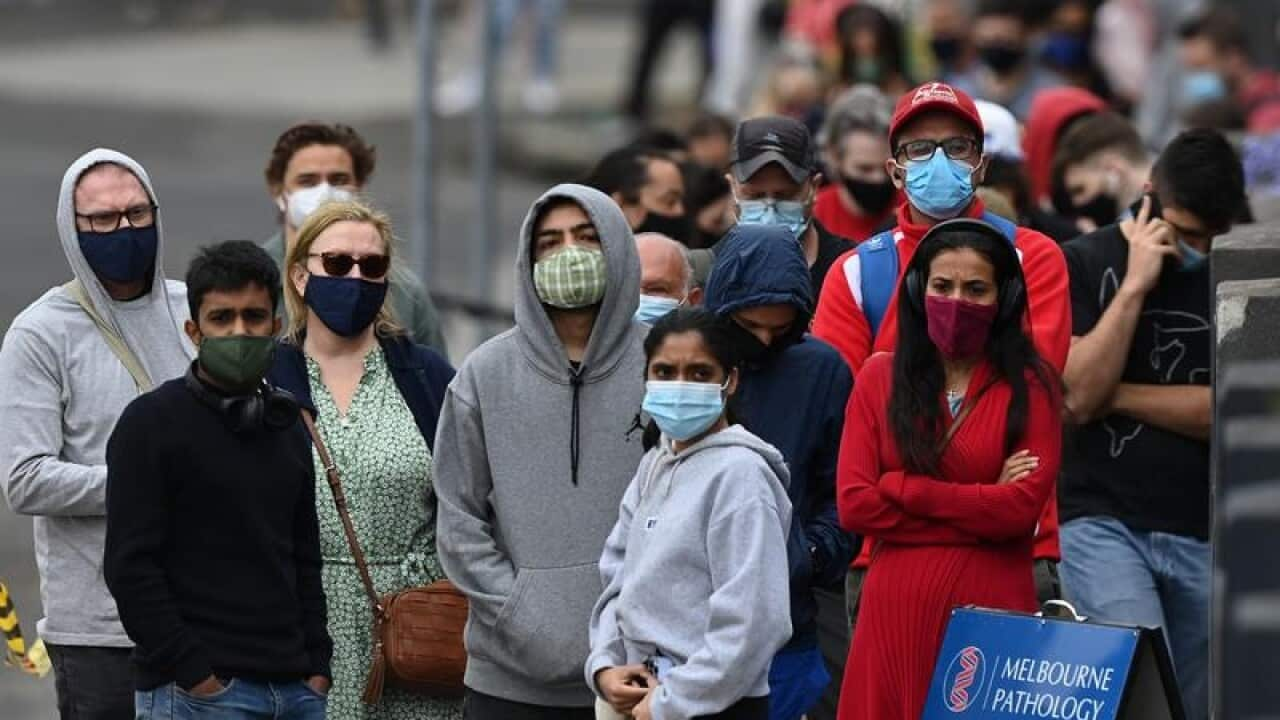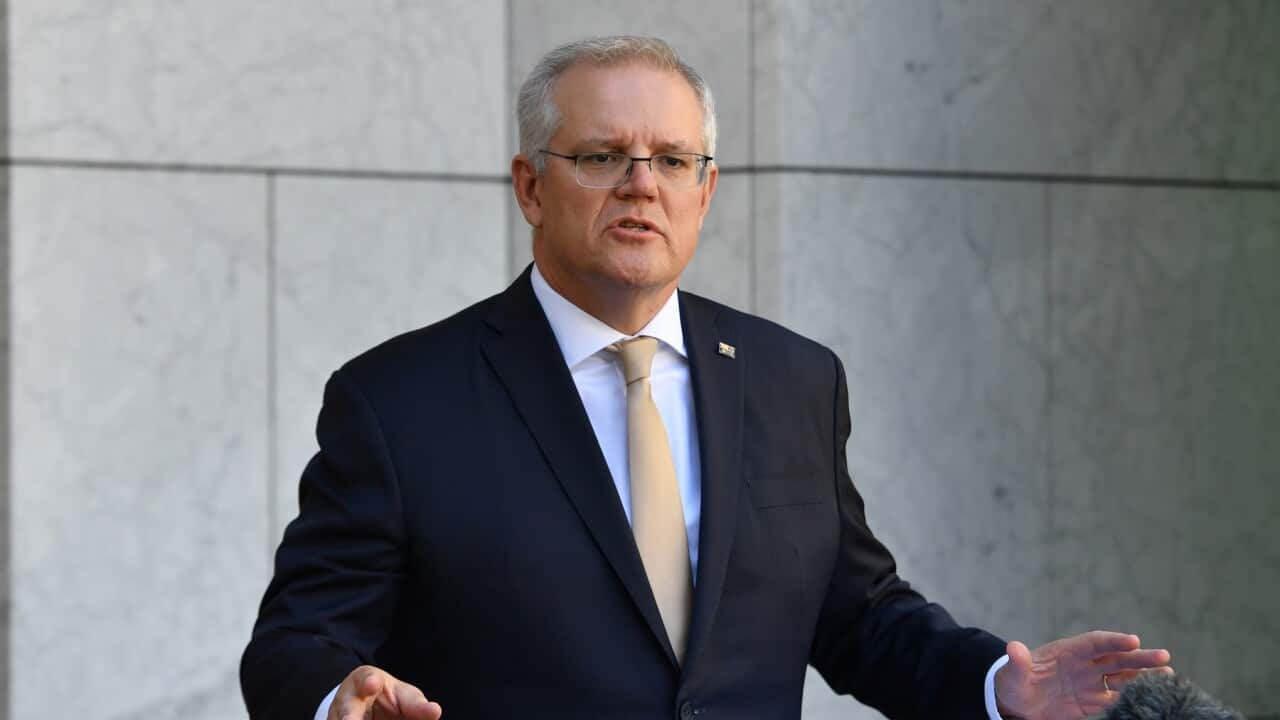Victoria has reported 2,005 new COVID-19 cases and 10 deaths, as an indoor mask mandate comes into effect at 11:59pm.
Acting Premier James Merlino has announced indoor mask mandates will be expanded in hospitality and office settings from 11.59pm on Thursday.
Face masks will also be required at all major events with more than 30,000 patrons.
"This is a sensible response which will allow businesses to stay open, bars and restaurants to continue to stay open and major events to go ahead," Mr Merlino told reporters.
"Masks are a cheap and effective way to maintain the health of the community - it's something public health experts have been calling for."
He said a lockdown was not considered as an option because Victoria was in a strong position due to its high rates of vaccination.
It comes as the state recorded its COVID-19 daily tally since October 22 when the state recorded 2,160 cases, and has pushed up active infections to 14,801.
A total of 398 patients are in hospital, including 72 who are actively infected with the virus and in intensive care, with 39 on ventilators.
The seven-day hospitalisation average is steady at 391.
Testers processed 85,112 results on Wednesday, while 16,758 people were vaccinated in state-run hubs.
On Wednesday after a national cabinet meeting, Australia's Chief Medical Officer Paul Kelly said wearing masks indoors was "highly recommended", but did not call for blanket mandates.
Before the meeting, Acting Premier James Merlino said officials would consider his advice and described mask wearing as a "small inconvenience for a significant public health benefit".
The Victorian government had flagged it would relax mask requirements last week but instead kept mandates in retail settings, for hospitality workers and on public transport, citing the spread of the Omicron variant.
Senior government officials met on Wednesday night to review the state's restrictions including the current mask settings, The Age reports.
Meanwhile, Victoria's testing system continues to strain under the weight of holidaymakers seeking a swab for interstate travel, with at least 20 sites across Melbourne temporarily closed as of 9am after reaching capacity.
Mr Weimar said more than a quarter of total tests in recent days had come from people needing a negative result to journey to Queensland, South Australia, Tasmania and the Northern Territory.
He blamed the long queues and waiting times on the "bureaucratic" requirement, and hopes other jurisdictions will move to a "more sensible arrangement".
The Australian Health Protection Principal Committee will report back to states and territories on whether PCR tests should be required for interstate travel, or can be replaced by rapid antigen tests.











